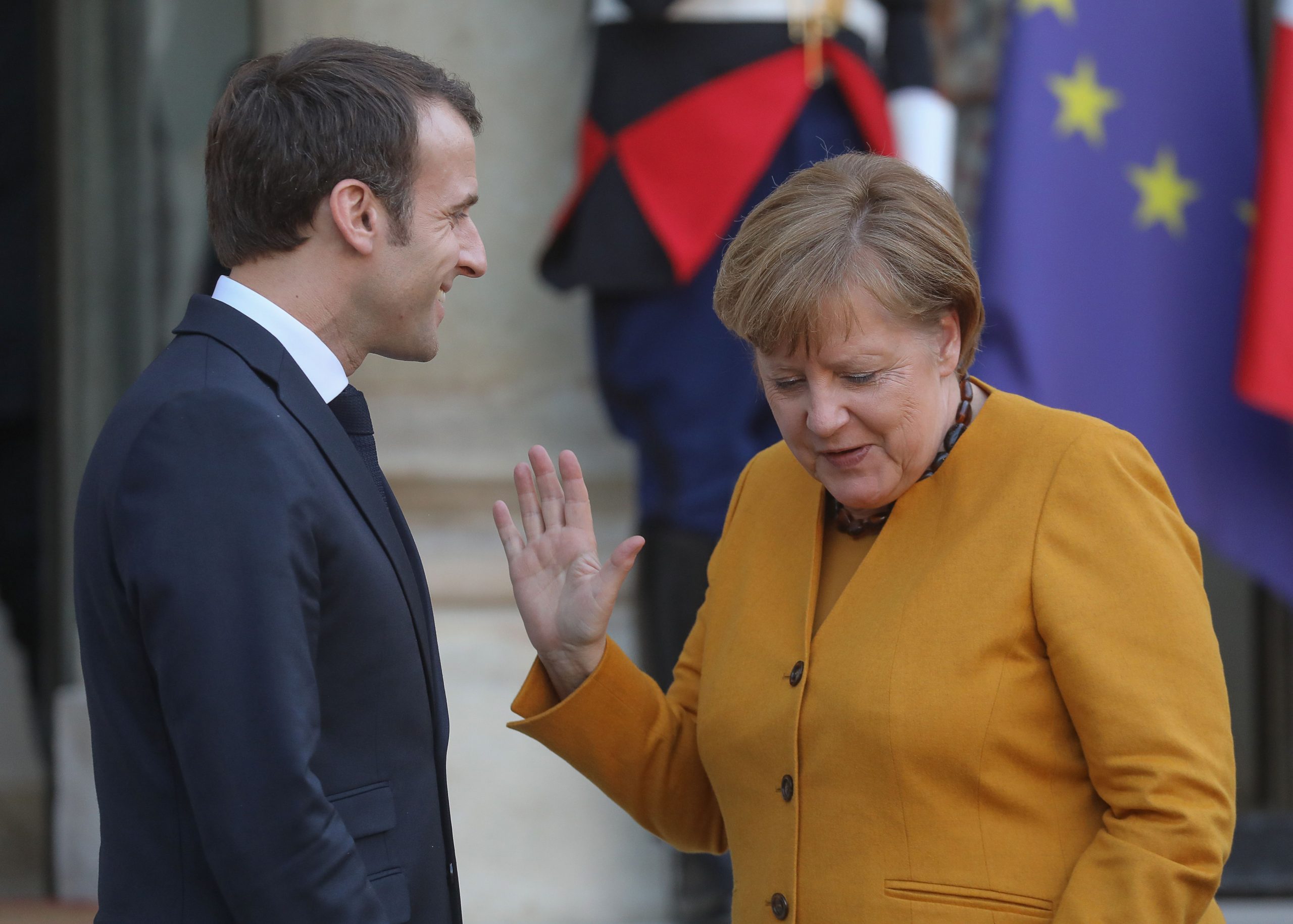
On 4 March, the French president Emmanuel Macron launched his career as an opinion writer. In an article published in 28 languages and newspapers across Europe, including the Guardian, Germany’s Die Welt, Italy’s Corriere della Sera, and Spain’s El Pais, Macron called for a “European renaissance” and detailed his project for the EU, beyond Brexit and this May’s European elections.
Ambitious as ever, the French president addressed the citizens of Europe directly, proposing a series of reforms grouped around three themes: freedom, protection, and progress. Macron wants to “rethink the Schengen area”, create a “common border force”, a “European asylum office” and a “European Council for Internal Security”; negotiate a “EU minimum wage”; launch a “European Climate Bank to finance the ecological transition” and a “European food safety force to improve our food controls”; and put in place “European supervision of the major digital platforms”.
Energised by the “great national debate” he began in France in response to the gilets jaunes (yellow vests) crisis (the debate is still ongoing and has yet to deliver concrete measures), Macron also plans to establish, by the end of 2019, a “Conference for Europe”, to “define a roadmap for the EU” by organising “citizens’ panels” and speaking to “academics, business and worker representatives, as well as religious and spiritual leaders” across the EU. This undoubtedly represents a great, if daunting, project for Europe.
The French president is renowned for his bluntness on Brexit, and his letter was no exception. The “Brexit impasse,” he wrote, is a lesson for everyone because “retreating into nationalism offers nothing; it is rejection without an alternative.” But in between his assaults on the multiple lies of Brexit (“Who told the British people the truth about their post-Brexit future?”), Macron left an intriguing message for Remainers: in a reformed Europe, he wrote, he is certain “the UK will find its true place”. Whether that’s a call for the UK to cancel Brexit, to remain in a customs union, to rejoin in 10 years, or to simply gaze at the EU from afar is unclear.
Everything in Macron’s letter follows the Frenchman’s first PR rule: grand declarations made in a noticeable, innovative fashion, that promise much and can be summed up as “easier said than done”. He offered no detail on how to create new European bodies (which the EU hardly has a shortage of), or how the Conference for Europe will operation. There was no mention of the Eurozone, which he had previously been vocal about reforming. These are big ideas, but the chances of a common, EU-wide vision on issues as diverse as trade, tech, climate and (perhaps especially) migration vary dramatically.
Macron managed to make headlines, but his letter wasn’t the biggest news in Brussels that day: the centre-right European People’s Party moved towards excluding Viktor Orban’s Fidesz party from its ranks, relegating Macron’s letter to second place.
This letter would be more credible if the French president’s La République En Marche! (LREM) had a real presence in EU institutions — but as of 6 March, names for its European elections list have yet to be officially announced, and a proposed alliance with the European parliament’s Alliance of Liberals and Democrats has not been agreed.
Macron’s party is polling high for the elections, and will surely gain many MEPs, but for now its reach beyond France’s borders is limited — only French voters will be able to cast a vote in favour of the letter’s pledges. Macron has offered an EU-wide programme without a European platform to implement it.
He won the French presidency in 2017 with a new party that revolved around his persona. Nearly two years later, with the full LREM list due to finally be published in mid-March, after most French parties have already released theirs, Macron is once again the party’s only recognisable figurehead.
The two names circulating as potential leaders of LREM’s European campaign are those of health and Europe ministers, Agnès Buzyn and Nathalie Loiseau. But ultimately, LREM still means Macron. It’s unconventional for a French president to interfere so directly with a European election campaign and, while Macron has made unconventionality his trademark, he must learn to delegate if his call for reform is to become reality.
The EU has nonetheless reacted positively to Macron’s return to European affairs. Brussels officials were delighted by his 2017 Europhile campaign but were disappointed by the lack of action that followed. Unsurprisingly, then, they have welcomed signs of life. EU Council president Donald Tusk has said he “fully supports” Macron’s “way of thinking”, while EU Commission head Jean-Claude Juncker considers his ideas “very realistic” and “trend-setting”.
In Germany, the letter has received a similarly warm welcome: a German government spokesperson saluted Macron’s “engaged discussion on Europe’s future”. Yet an MP from Angela Merkel’s Christian Democrats was more measured, reminding Macron that the EU doesn’t exactly need more institutions.
In Spain, commentators viewed Macron’s op-ed as a convenient distraction from his domestic woes. El Mundo concluded that “Macron is using the European playing field to get himself out of a national crisis, the most serious since May 1968.” In Italy, after weeks of tensions between France and the coalition government, which culminated with France recalling its ambassador to Rome, Matteo Salvini chose to ignore the French president’s letter (he tweeted about football instead). Only Sandro Gozi, a former European affairs minister close to France’s LREM, praised Macron’s “great courage and vision”.
Intriguingly, Hungary responded positively to Macron’s letter. The French president’s initiative, an international spokesman said, “could mark the beginning of a serious European debate”. But he then went on to criticise Macron’s pro-immigration stance, and described his proposal to ban anti-immigration ads as “unacceptable censorship”.
It’s clear that Macron has big ideas for Europe. Now, he needs the means to implement them, by gaining ground in the EU elections and striking alliances in Brussels. It’s not impossible — just easier said than done.






